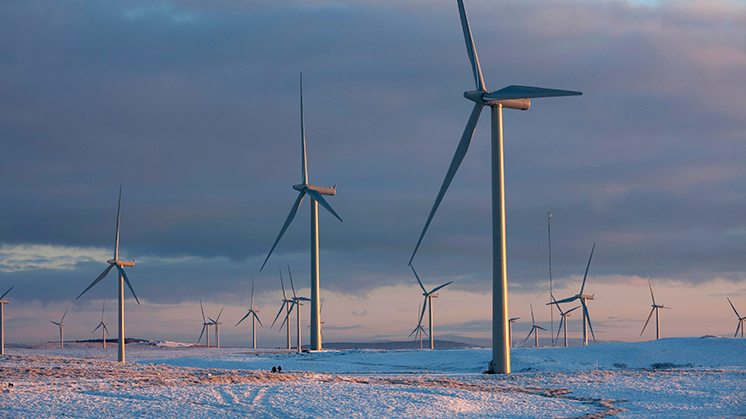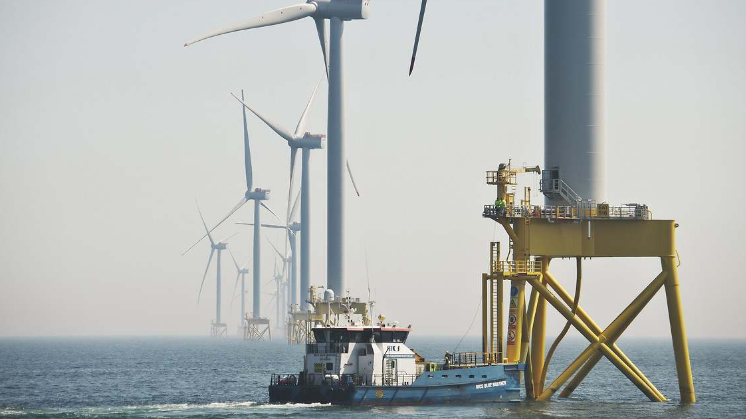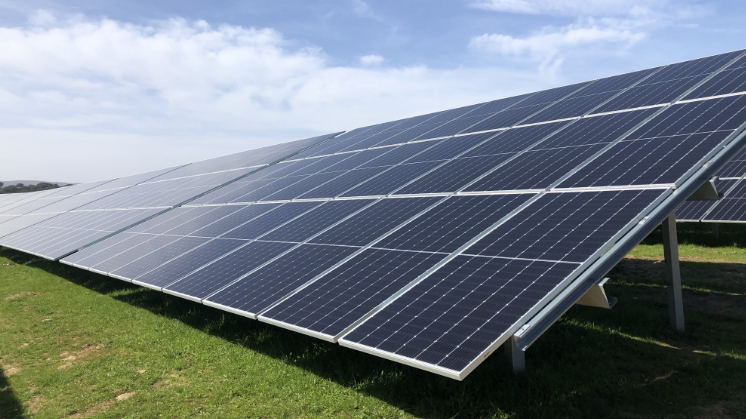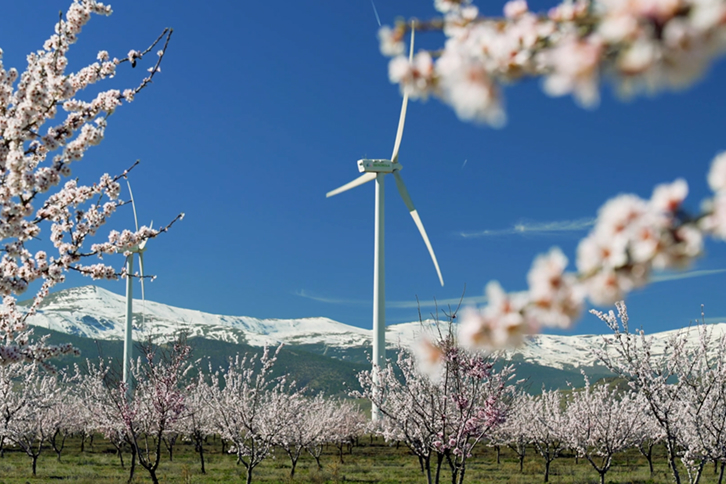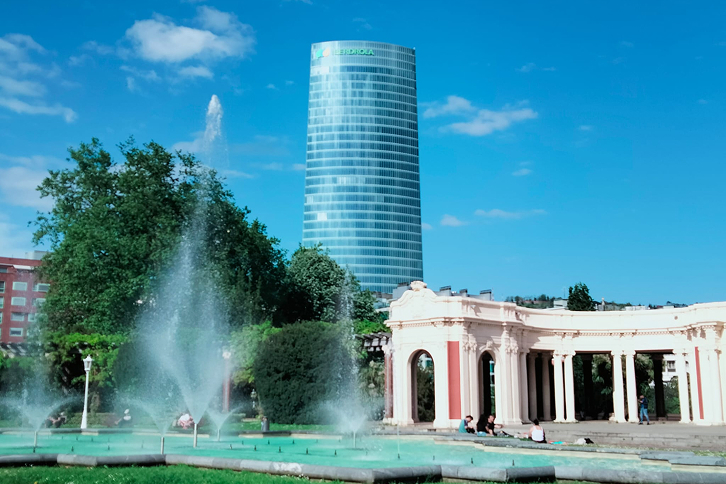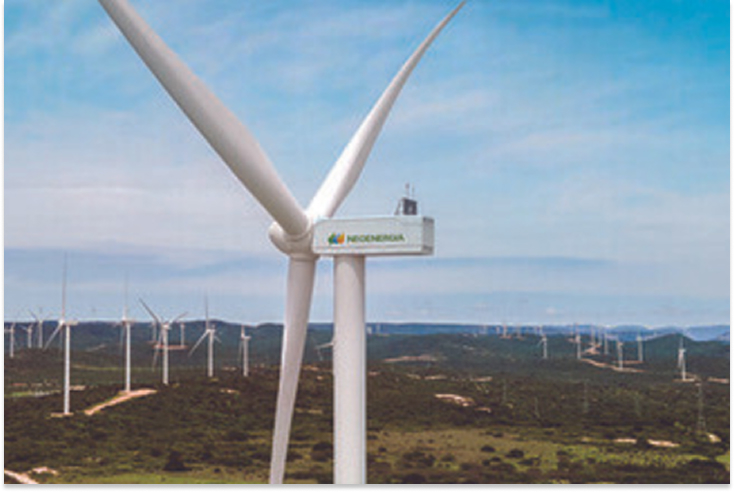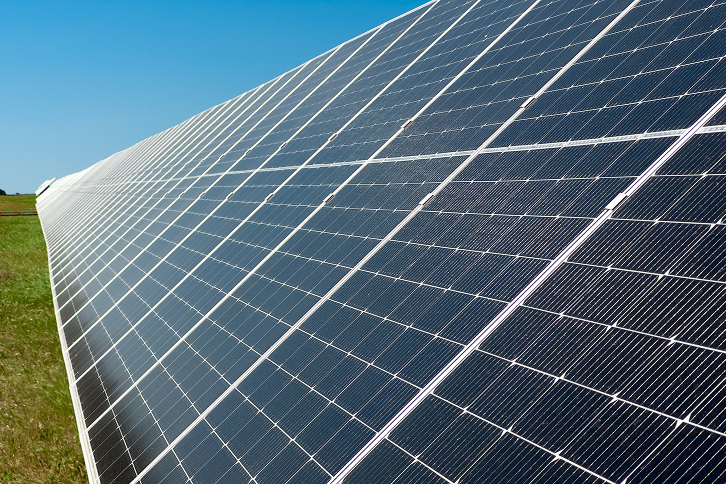Power purchase agreements (PPA)
Do you know what a PPA is and what its main advantages are?
Long-term energy purchase agreements are a model that provides buyers with price stability when purchasing renewable energy for their businesses.

What is a PPA?
A PPA (Power Purchase Agreement) is a long-term clean-energy supply agreement from a specific asset at a fixed price between a renewable developer and a consumer – usually companies that need large volumes of electricity – or between a developer and a retailer that will resell the energy. Signing a PPA can be seen as selling a project and its environmental attributes (Guarantees of Origin). It is a commitment that enables the renewable developer to make an investment decision based on profitability versus risk and/or to secure the financing needed to build the project.
Iberdrola, a leader in PPAs
The Iberdrola Group has extensive experience in this area and manages these contracts in countries such as the United States, the United Kingdom, Spain, Portugal, Germany, Italy, Poland, France, Brazil, Mexico and Australia. It has already signed agreements with Amazon, Meta, Mercadona, Apple, T-Mobile, Mercedes-Benz, Salzgitter, Air Liquide, Bayer, Google, Renault, the Volkswagen Group, Auchan and AB InBev, among other companies.
For the second year running, Iberdrola appeared as the top seller in Europe in the report published by Pexapark titled Renewables Market Outlook 2025.
According to the latest 1H 2025 Corporate Energy Market Outlook report, in 2024 corporate clients worldwide reportedly announced the signing of 62.2GW, 36% more than in 2023, mainly solar and wind.
Taking these figures into account, it should be noted that around 45% of the agreements signed took place in the United States, securing 28GW. This, together with the rest of the countries that make up the American continent, would total 30.6GW for this geographical area, which has contracted the highest volume of energy through this mechanism. Meanwhile, EMEA closed 30% of the agreements, equivalent to 18.7GW of contracted capacity.
In total, since 2008, companies have signed PPAs for 269GW of clean energy, more than Germany’s total power generation capacity.
- 64
- 48
- 32
- 16
- 0
- 2017
- 2018
- 2019
- 2020
- 2021
- 2022
- 2023
- 2024
- AMER
- EMEA
- APAC
- Cumulative
Source: BloombergNEF
Note: Chart shows only offsite power purchase agreements APAC capacity estimated. Figures are subject to change as more information made available. Data through December 2024.
Types of PPAs
There are several types of PPAs depending on the point where the energy is injected:
Iberdrola has extensive experience in the PPA sector, beginning our journey more than a decade ago in the United States, where we have signed agreements with major companies such as Amazon, Meta and Google. We provide green energy for facilities including Leaning Juniper IIA and the repowering of Leaning Juniper IIB, Tower Solar, Oregon Trail and True North.
Iberdrola, European leader in PPAs
According to the Pexapark Renewables Market Outlook 2026 report, we are also the European market leader for the third consecutive year in 2025, almost doubling the next company in the ranking. This success is possible thanks to the multiple partnerships we have established across the countries where we operate.
For example, we have signed power purchase agreements to maximise our offshore wind capacity in Germany, where we operate several wind farms:
-
Wikinger, an operational wind farm with a capacity of 350 MW.
-
Baltic Eagle, 476 MW already in operation, supplying companies such as Amazon, Dillinger, Salzgitter Group, Holcim and Telefónica.
-
Windanker, currently under development with 300 MW, expected to provide clean energy to Amazon, Mercedes-Benz, Schwenk Zement and the world’s largest brake materials manufacturer, TMD Friction Services.
Expansion in Italy and consolidation in Spain
We are also growing in Italy, adding new operations to supply energy to companies such as Bayer and Bticino through the Montefiascone solar plant, or Prima Sole Components via our Montalto di Castro facility.
Iberdrola has also signed PPAs in Italy with supermarket chains Tosano, PAM Panorama and Selex, as well as with the steel company Acciaierie Venete S.p.A.
Spain is one of the countries with the highest number of signed PPAs, where we have accumulated nearly 50 contracts over our history. Companies including Amazon, Alcampo (Auchan), BP, Danone, Air Liquide, Euskaltel, Renault, Grupo Volkswagen, Mercadona, Renfe and Burger King Spain, among others, already have a supply of renewable energy thanks to our facilities.
Check the main PPAs signed in the countries where we are present
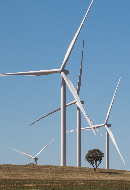
What is wind energy?
Wind energy uses wind turbines to transform the power of the wind.
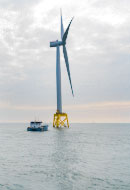
Do you know how offshore wind farms work?
Offshore wind energy is is obtained by harnessing the power of the wind offshore.
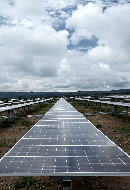
What is solar energy?
Solar energy is an inexhaustible source of renewable energy.
Advantages of a PPA for consumers

Clean energy
Supply of renewable energy, helping buyers meet their sustainability goals and reduce carbon emissions.

Stable price
These agreements allow companies to enjoy stable prices and easily forecast long-term electricity costs.

Potential for additionality
Signing a PPA can make it possible to invest in new renewable assets, reducing energy generation from polluting sources.

Brand image
Such agreements offer the consumer the opportunity to personalise the renewable facility providing their energy with their own branding.

Competitive pricing
PPAs provide energy at a competitive price.

Tailored solution
Each product is adapted to the customer’s needs, something that isn’t possible with standard energy supply contracts.

Clean energy
Supply of renewable energy, helping buyers meet their sustainability goals and reduce carbon emissions.

Stable price
These agreements allow companies to enjoy stable prices and easily forecast long-term electricity costs.

Potential for additionality
Signing a PPA can make it possible to invest in new renewable assets, reducing energy generation from polluting sources.

Brand image
Such agreements offer the consumer the opportunity to personalise the renewable facility providing their energy with their own branding.

Competitive pricing
PPAs provide energy at a competitive price.

Tailored solution
Each product is adapted to the customer’s needs, something that isn’t possible with standard energy supply contracts.
Advantages of a PPA for the developer

Secure investment
PPAs enable investment in new assets thanks to the certainty of long-term revenues.

Calculated risk
Energy supply agreements support investment decisions based on profitability versus risk.

Access to financing
The commitment of stable, long-term revenues facilitates access to financing, if required, to carry out the project.

Long-term relationships
By their nature, PPAs establish a long-term relationship between buyer and supplier.

Alternative route
They provide an alternative route for investing in renewable assets, complementing auctions and the sale of electricity generation from parks to the market.

Secure investment
PPAs enable investment in new assets thanks to the certainty of long-term revenues.

Calculated risk
Energy supply agreements support investment decisions based on profitability versus risk.

Access to financing
The commitment of stable, long-term revenues facilitates access to financing, if required, to carry out the project.

Long-term relationships
By their nature, PPAs establish a long-term relationship between buyer and supplier.

Alternative route
They provide an alternative route for investing in renewable assets, complementing auctions and the sale of electricity generation from parks to the market.
Discover our renewable energy production facilities
Onshore wind
We have 20,677 MW of installed capacity worldwide, making us a leader in the field of onshore wind energy.
More about onshore windOffshore wind
At the Iberdrola Group we are pioneers in offshore wind energy, which is currently one of the company’s main growth drivers, with plans to increase our capacity to 6,500 MW by 2030 thanks to major investments around the world.
More about offshore windPhotovoltaic solar energy
We have more than 8,000 MW of photovoltaic capacity across several countries. This system converts energy from the sun into electricity, which can be used either through the grid supply or via self-consumption solutions.
More about photovoltaic solar energyOnshore wind
We have 20,677 MW of installed capacity worldwide, making us a leader in the field of onshore wind energy.
More about onshore windOffshore wind
At the Iberdrola Group we are pioneers in offshore wind energy, which is currently one of the company’s main growth drivers, with plans to increase our capacity to 6,500 MW by 2030 thanks to major investments around the world.
More about offshore windPhotovoltaic solar energy
We have more than 8,000 MW of photovoltaic capacity across several countries. This system converts energy from the sun into electricity, which can be used either through the grid supply or via self-consumption solutions.
More about photovoltaic solar energyNews about PPAs
23 September 2025









